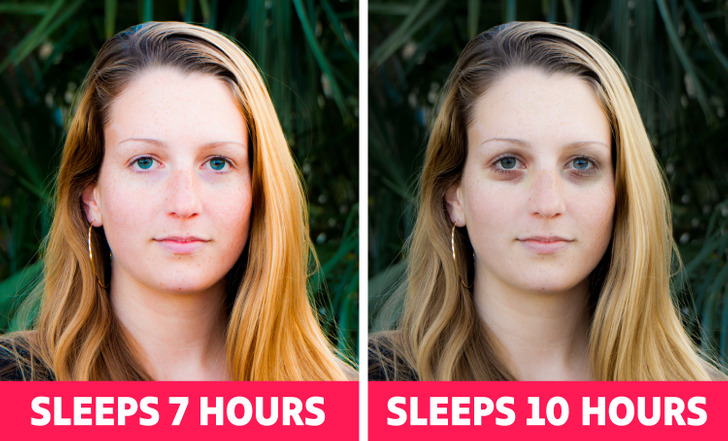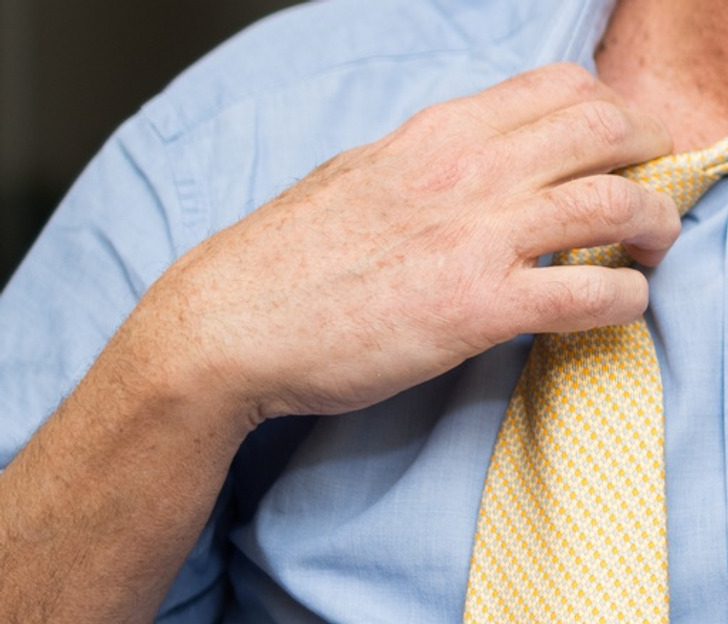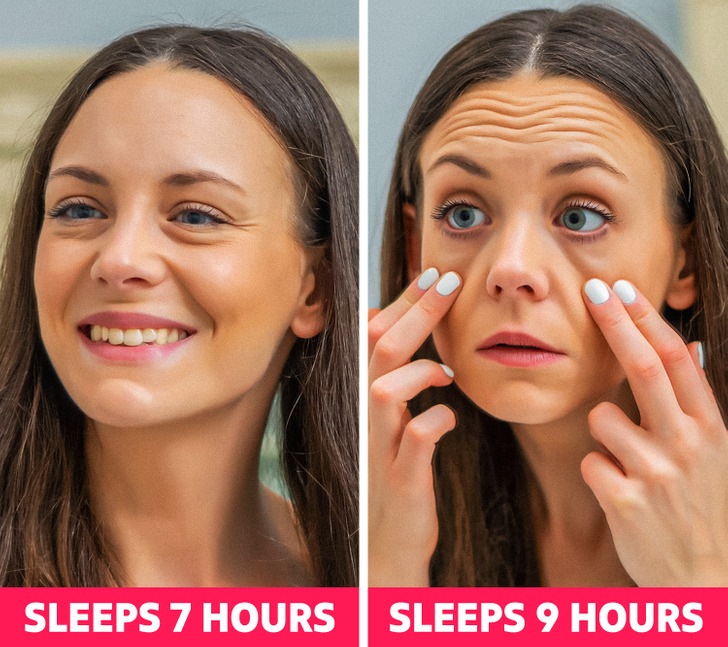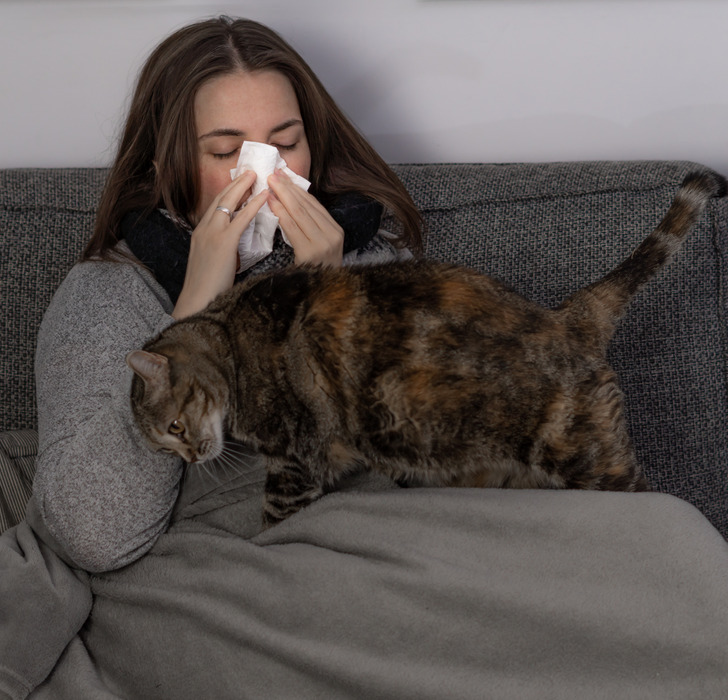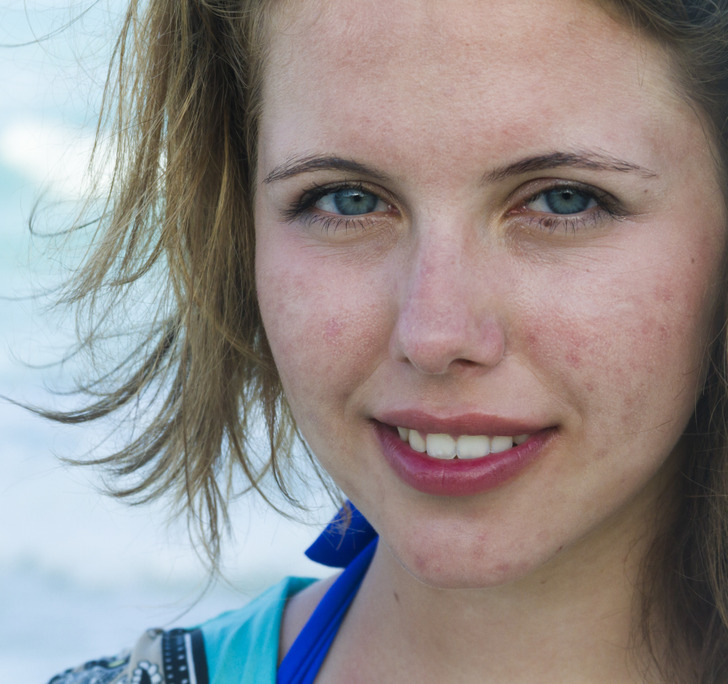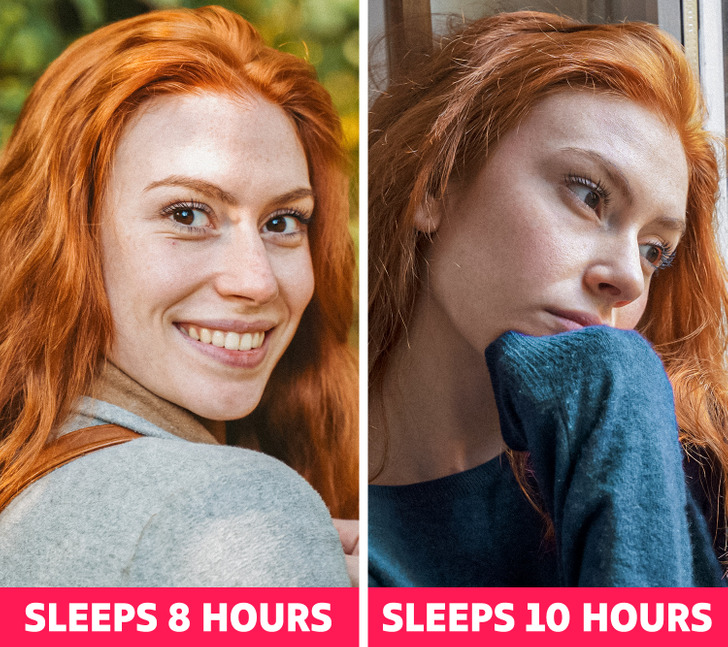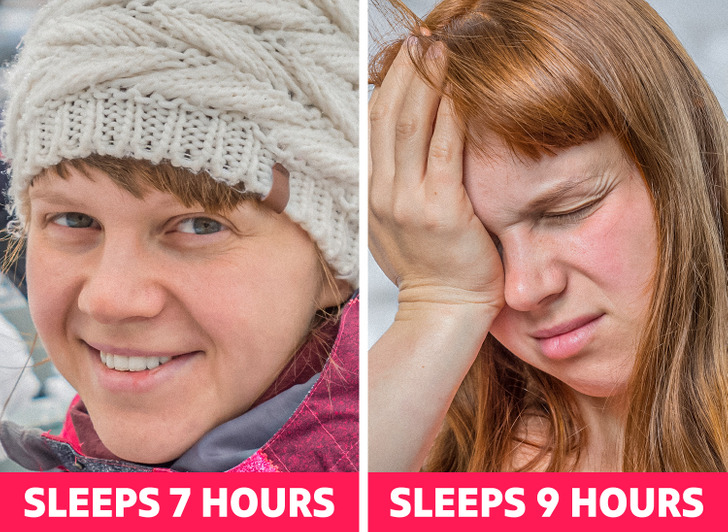11 Unexpected Consequences of Not Sleeping Enough and Sleeping Too Much
Most people know that sleep deprivation may have a negative influence on health. However, if you sleep too much, it may also have negative consequences for your health, and they may be just as bad. Adults aged from 26 to 64 need from 7 to 9 hours of sleep per day. And any type of deviation is harmful to health.
We at CHEERY, have decided to find out what happens to the body when we are often sleep deprived, or when we sleep for too long.
We put on weight.
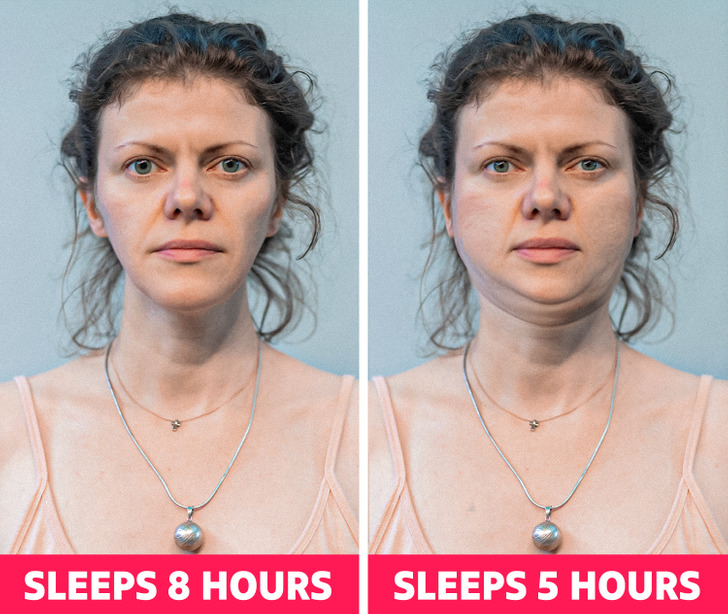
Scientists found that people sleeping less than 5 hours a day gain weight much quicker and are susceptible to obesity. The same can be said about people that sleep for more than 9 hours. And the participants of the experiment that slept from 7 to 8 hours were able to stay in good shape easier. So if you don’t have the right schedule, neither diets nor sports can help.
Dark circles appear under the eyes.
Everyone knows that sleep deprivation can lead to dark circles and bags under the eyes. However, as it turns out, if you sleep for too long (for example more than 9-10 hours a day), the effect will be similar. When you don’t sleep well, the skin becomes pale, and the blood vessels become more visible, so bags appear under the eyes.
The risk of cardiovascular disease increases.
Scientists couldn’t find an explanation as to why oversleeping is connected with cardiovascular disease. But studies show that if a man or a woman sleep from 9 to 11 hours, they have higher chances of having arteriosclerotic heart disease. The people sleeping from 7 to 8 hours a day are safer.
It’s hard to focus.
It’s widely known that sleep deprivation hinders our ability to think. It turns out that oversleeping is also bad for making quick decisions, and dealing with problems. Besides, it makes our memory worse.
Scientists have concluded that in order to preserve your cognitive abilities, you need to sleep for 7-8 hours a day.
The skin becomes dry and wrinkly.
Studies also show that our sleep schedule also affects our skin. When we don’t sleep enough, the body doesn’t get enough moisture, so the skin looks dry and dull. But it’s the same when we sleep too much.
The thing is, when we spend more than 8 hours in bed, our body doesn’t have enough time to restore the balance of water. This is why we get early wrinkles and saggy skin.
We might get ill more often.
Oversleeping might have a negative effect on the immune system. Besides, sleeping too much leads to an increase in inflammation of the body.
Scientists found it out by measuring the cytokine levels in blood. If the numbers are too high, it means the body is reacting to an infection. They discovered that the women that sleep too long have a cytokine that is 44% higher than the norm.
We get acne.
We are more prone to depression.
Oversleeping can lead to depression. Insomnia is usually linked to depression, but, according to studies, around 15% of people suffering from depression, said that they slept more than 9 hours a day. Such a schedule made their condition worse.
We get headaches.
When we sleep for too long, the serotonin levels are affected, which leads to headaches. The people that have a good sleep schedule but sleep late on the weekend or during vacation, often complain of having headaches after waking up.
Besides, oversleeping may cause or worsen backaches. Doctors recommend being more active if you have backaches, and not spending too much time in bed.
We get more impulsive.
Scientists at Clemson University found a connection between sleep and self-control. The people that didn’t sleep enough acted more impulsively and couldn’t resist temptations. They made more mistakes and often regretted some of their actions and decisions.
Everyone seems hostile.
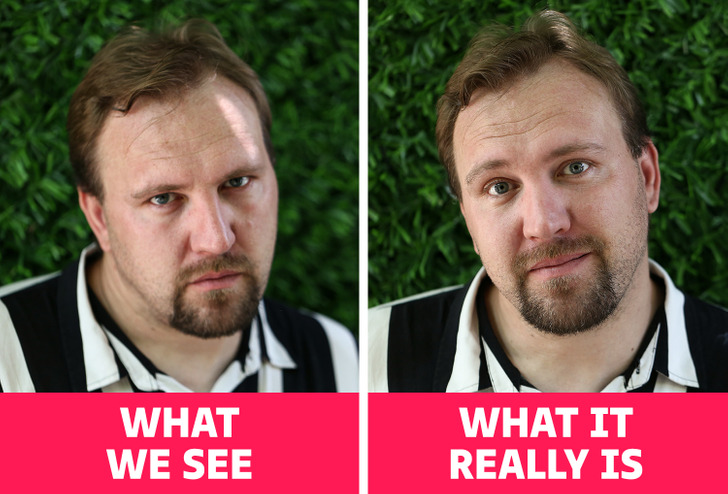
A new UC Berkeley study shows that sleep deprivation dulls our ability to accurately read facial expressions. People might smile at us or look neutral, but if we are tired, we might confuse it for aggression and arrive at false conclusions. Such behavior is typical of medical workers and police officers that often suffer from a lack of sleep and rest.
Do you have sleep problems? How do you deal with them?
